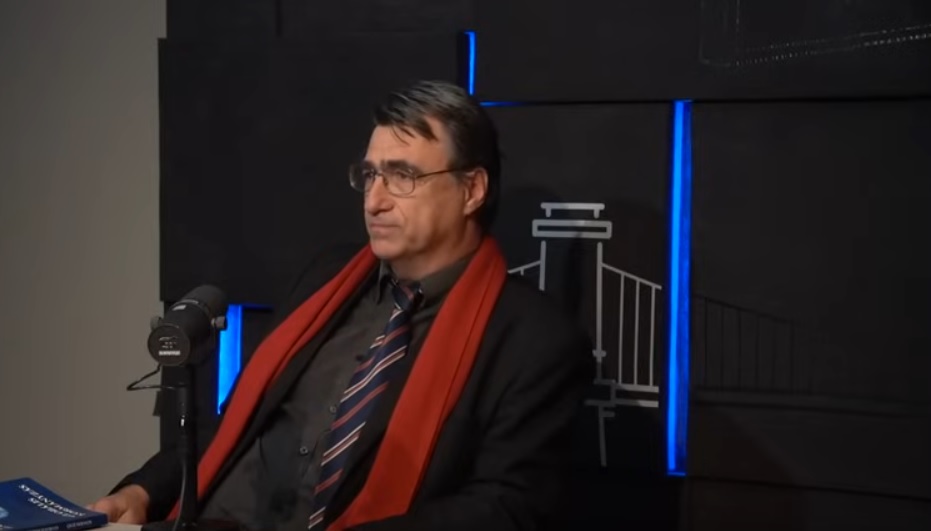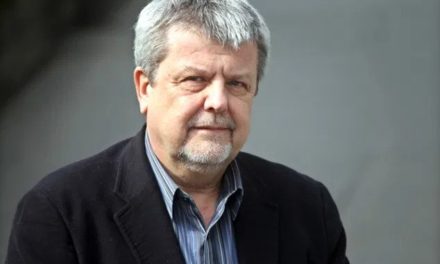Where is humanity headed, is the pursuit of global governance a real attempt? Interview with Jenő Szmodis, lawyer, legal philosopher, university associate professor.
In Hit Rádió's program, presenter Imre Jonatán Nagy asked his invited guest.
There are many different ideas about the future of how the world works, one of the most mentioned is definitely the possibility of global world governance.
The issue of global governance has several layers. It is primarily political-economic, but we cannot forget that it also has sociological, social, theological, and historical-philosophical dimensions.
It is worth asking the question, when does the decline of the West begin?
Many people debate this a lot, but it is certain that the role of people is markedly reevaluated during the Renaissance, and this is an important part of our problem. This is when the definition of the relationship between man and God begins to change, because it does not matter whether man perceives himself as an absolute being or is able to see himself within a larger system.
The efforts that are being outlined now and try to create a global governance structure and a ruling order are related to the creation or possibly the desire to create an unlimited power, but this is at the root of the idea that man as a being has in himself a with the ability to make his own power unlimited. I would like to quote Giovanni Pico della Mirandola's conception of man,
according to whom we can make ourselves what we want. And we have already arrived at the time when identities become uncertain. Are you familiar with Mirandola's theory?
Could it be that the people who want to create global governance aim to subjugate nature and God? Can such an intention be felt?
I don't have much doubt about it, and the idea is not new either. Already in the 19th century, it appeared that we must rule over nature, that is man
he must subdue nature. But it's a bit new to be raped.
Older people can still remember the goal stated in socialism: to conquer nature. We don't have to defeat it, but live in harmony with it.
Nowadays, people may increasingly feel that we are renouncing control of our own destiny. Many people think that they shouldn't even vote, it's in vain anyway, and then other smart people will decide what should happen.
This is not a new trend either, it is just getting stronger. In a pluralistic society and market economy, a system is formed whose purpose is to alienate the masses from the political sphere, and this had a tradition in socialism as well. So the people don't have to deal with politics, and then the leading comrades will arrange it, but the same alienation from politics appears in some bourgeois democracies in our time.
In a democracy, legitimacy is given to those in power by the people. In the kingdom, in the monarchy, this is the mandate given by God, but what does it give in this new project, in global governance?
I am not convinced that those who exercise power, I mean on a global level, even think about the issue of legitimacy. They feel entitled to lead only because of their position.
The issue of legitimacy is only important to them to the extent that it has to be sold in some way. The people must be convinced that this is happening of their own free will. Therefore, an ideology appears and from this point of view, the democratic system may seem ideal. They return their rule to the will of the people, but
a distinction must be made between the real will of the people resulting from information and, say, the structures created as a result of manipulation.
Global governance presupposes that the entire globe, the entire world will line up behind one power, but it is not that simple. Even today, some countries are grouped around regions, but the interests of the regions are different. Nevertheless, does global governance remain a goal?
Although the multipolar world is currently emerging, this does not mean that the intention of global governance is dying. In the short term, it really seems realistic that a regional center will be created, and in fact they have already been formed, but the long-term goals have already been formulated. In recent years and decades, declarations have appeared that make these aspirations quite obvious and clear.
Featured Image: Screenshot/YouTube













